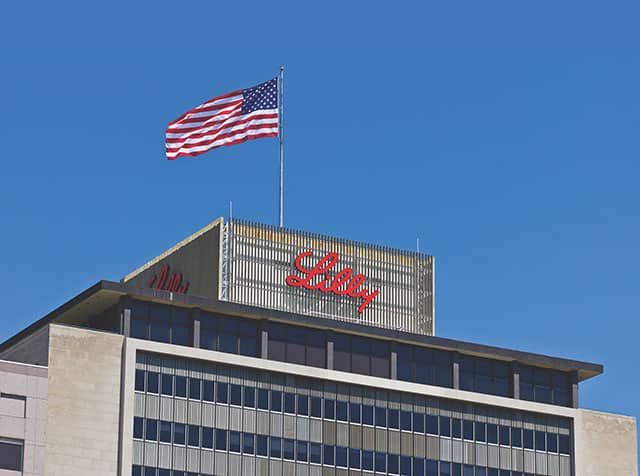
Eli Lilly’s has announced that its neutralising antibody bamlanivimab significantly reduced the risk of COVID-19 infection among residents and staff in care homes.
The results come from the phase 3 BLAZE-2 COVID-19 prevention trial, which enrolled residents and staff at care homes and assisted living facilities across the US.
At baseline, 965 participants tested negative for the SARS-CoV-2 virus, which causes COVID-19, while 132 participants tested positive for the virus.
Those who tested positive at baseline were included in exploratory analyses for assessing treatment with bamlanivimab, while participants who tested negative were randomised to receive either 4,200mg of the antibody or placebo.
After eight weeks of follow-up, the participant group that was treated with bamlanivimab demonstrated a significantly lower frequency of symptomatic COVID-19 cases compared to placebo.
The results suggest that bamlanivimab-treated participants have up to an 80% lower risk of contracting COVID-19 compared to residents in the same facility who did not receive the antibody.
In November 2020, bamlanivimab was granted an emergency use authorisation (EUA) from the US Food and Drug Administration (FDA) for the treatment of high-risk, mild-to-moderate COVID-19 patients.
The EUA was supported by an interim analysis conducted on Lilly’s BLAZE-1 clinical trial, in which bamlanivimab cleared SARS-CoV-2 by day 11 in most patients with mild-to-moderate COVID-19 symptoms.
Patients with a high risk of disease progression who were included in this study also saw their risk of hospitalisation and hospital visits drop when treated with bamlanivimab compared to the placebo group.
While the BLAZE-2 trial is ongoing, full results from the study are due to presented at an undisclosed future medical congress and also submitted for publication in an unnamed peer-reviewed clinical journal.
In December 2020, the US government purchased an additional 650,000 doses of the COVID-19 antibody for $812.5m.
Following the new purchase agreement, the total number of bamlanivimab doses secured by the US government totals 950,000.
Currently, residents and staff in care homes have been identified as a top priority group to receive COVID-19 vaccines.
Antibodies such as bamlanivimab could prove to be an important tool in the prevention of COVID-19 for care homes and people who haven’t yet received vaccines, Lilly’s chief scientific officer Daniel Skovronsky told Bloomberg.
“This is an urgent situation. Where there’s an outbreak in nursing homes and people haven’t yet received the vaccine, this could be a potential way to protect them before they get it,” added Skovronsky.




